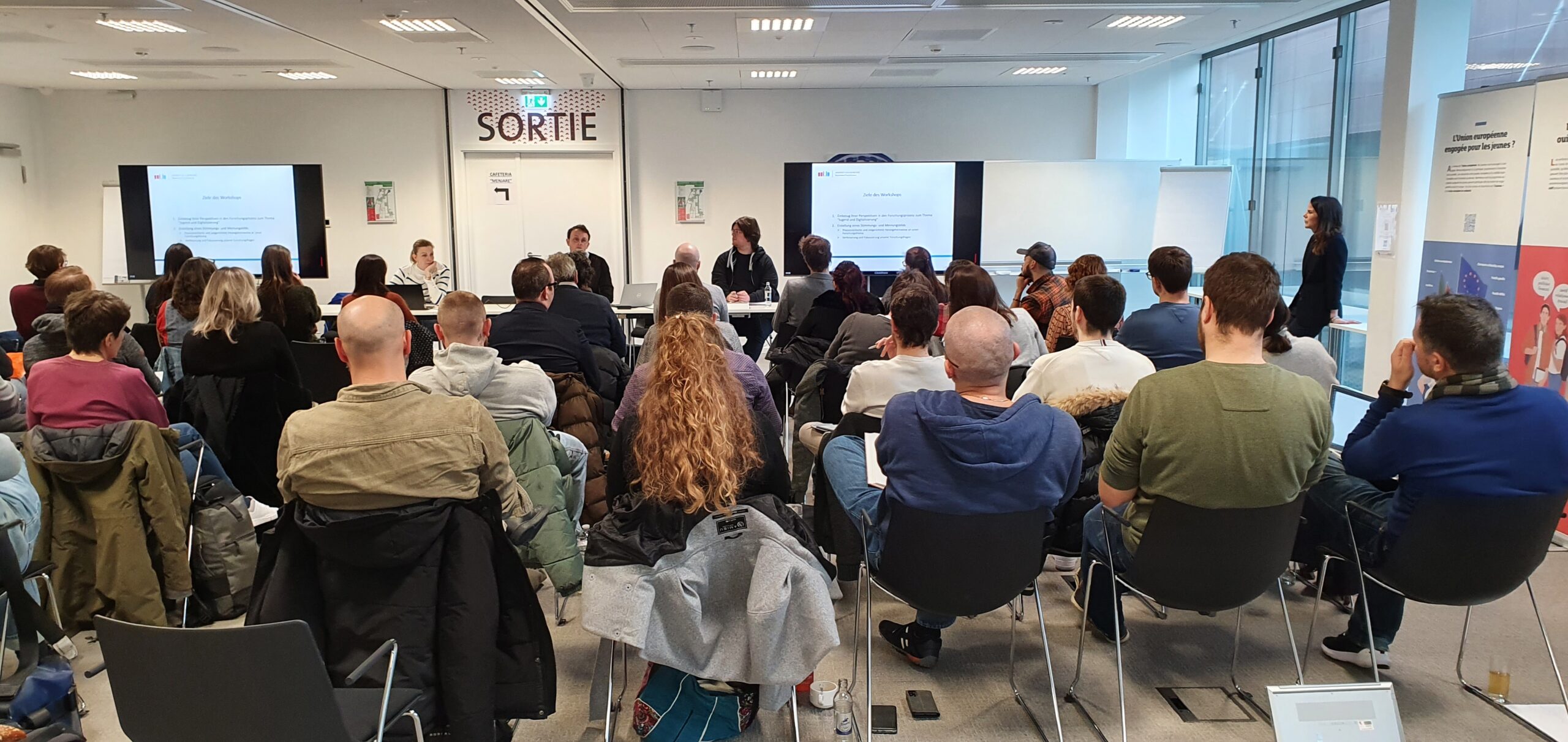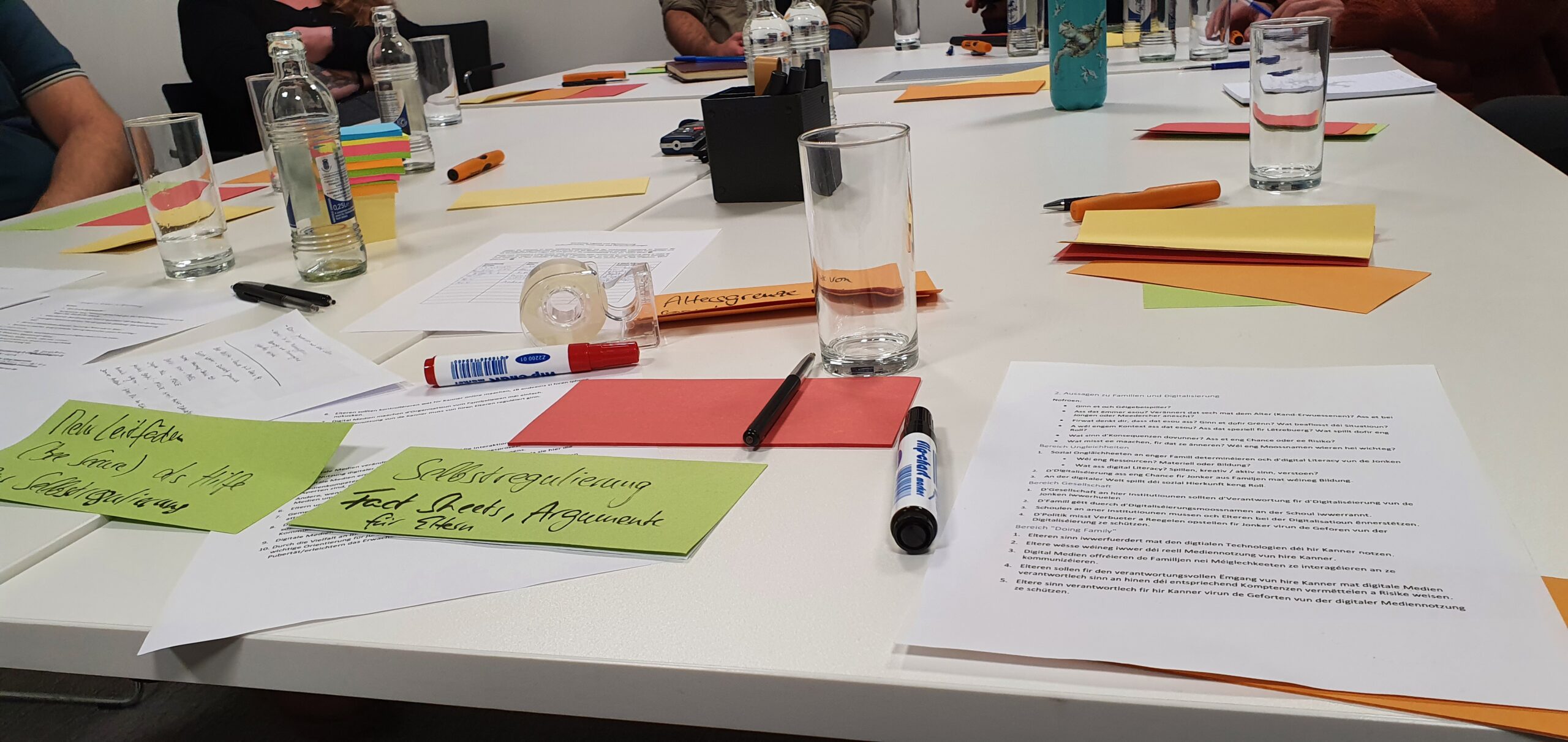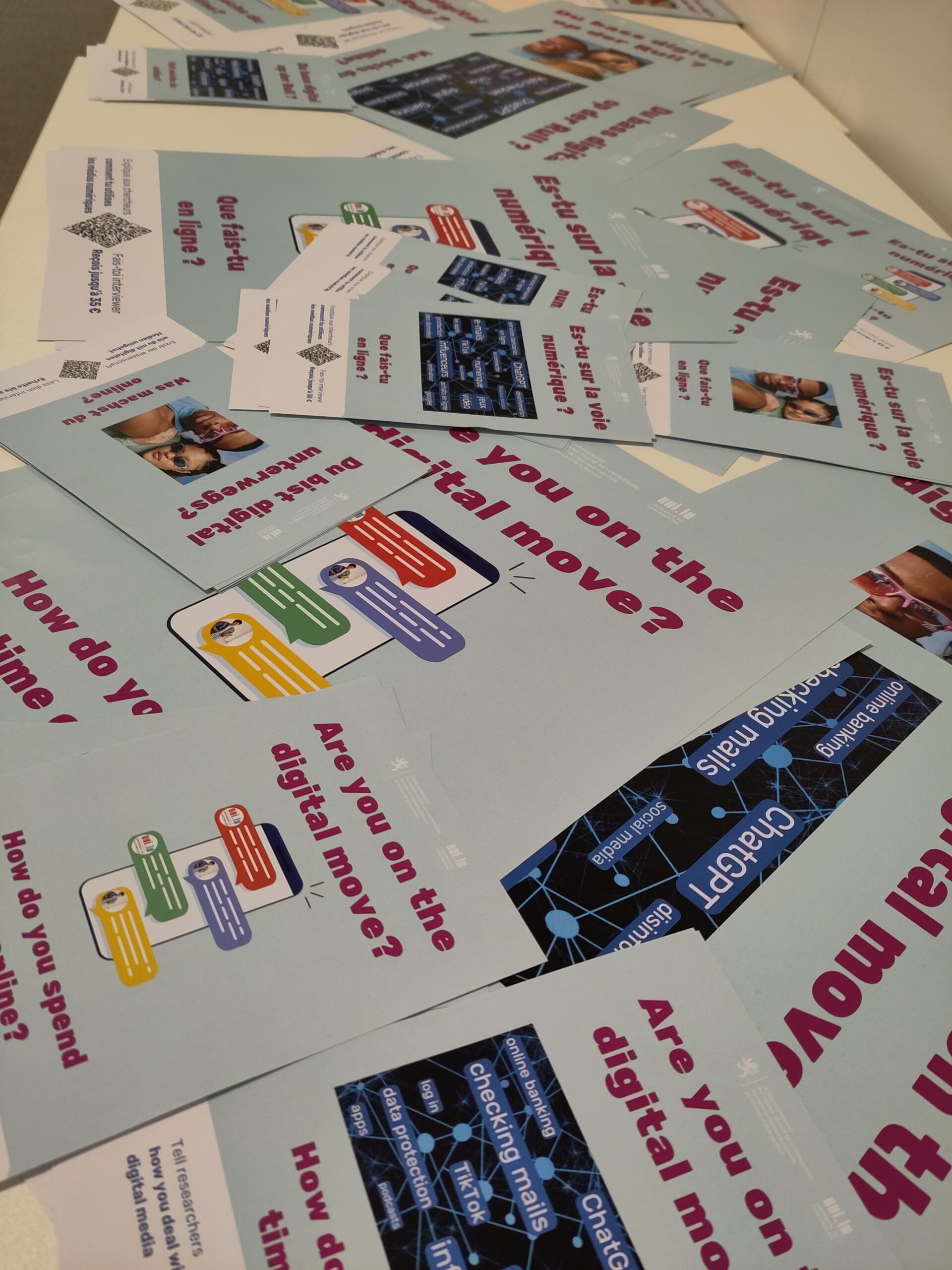The workshop focused on the work for the Youth Report 2025, which is being prepared by researchers at the Centre for Childhood and Youth Research (CCY) at the University of Luxembourg. Researchers from the CCY had invited interested representatives from youth practice to the “Youth and Digitalisation Workshop” on 31 January. Around 50 stakeholders from the formal and non-formal education sector as well as from AEF (family support) attended to discuss the topic of digitalisation in the youth sector.
The aim was to enter into a dialogue with practitioners on the topic of youth and digitalisation in order to exchange opinions and perspectives and to incorporate the expertise of practitioners into the work on the youth report. The workshop took place at the Ministry’s “Centre de Conférences” as the start of a series of events organised by the Service Jeunesse of the Ministry of Education, Children and Youth (MENJE).
Jump to content
Topics of the workshop
Guests at the workshop gained insights into four central topics of the Youth Report 2025: “Digital life worlds”, “Artificial intelligence”, “Education” and “Family”. The focus of the event was on those parts of the Youth Report that will be based on qualitative data analysis. The workshop began with two presentations:
- Presenting priorities of the Youth Report 2025
- Presenting kick-off pitches for this workshop
As the work on the youth report is currently at the beginning of the data collection phase, this was a good time for an exchange with youth practitioners. These four topics were discussed in groups:
Young people in their digital life worlds: connected and involved?
This small group focused on topics relating to the digital life worlds of young people in Luxembourg. The researchers were interested in what the participants had to report from youth practice regarding the use of digital media and technologies, what they would like to raise awareness of and what they would recommend. Various provocative statements on topics such as participation and inequalities were also discussed:
- “There are areas in life in which digital media play no role for young people.”
- “Digital media and technologies have more opportunities than risks or disadvantages for young people.”
- “Digital media promote a sense of community.”
Luxembourg’s digital learners: Is generative AI paving the way to the future?
This small group focused on the digitalisation and socialisation of young people. Researchers and interested parties from youth practice discussed the new conditions that are currently being created by digitalisation:
- What is meant by “generative artificial intelligence (AI)”?
- What opportunities, problems, strengths, and weaknesses does generative AI bring for young people?
- What potential for human learning, creativity and interaction do young people have in a world controlled by AI?
- Is “prompting” the digital skill of the future?
- What adaptations does the education sector need to consider to navigate young people towards an AI-driven world?
Digital change in formal and non-formal education: What opportunities and challenges do you see?
This small group focused on the experiences of young people with digitalisation in secondary schools, non-formal educational institutions, higher education and training. The participants discussed what opportunities and challenges they see in the education sector and also discussed the following questions:
- What are their motivations, usage styles and content?
- What skills do young people contribute and what skills do they acquire?
- How do young people assess digitalisation in educational institutions in terms of the benefits for their current life situation and their future life plans?
- Where does digitalisation increase or decrease education-related inequalities and what can be done to counteract this?
Between screen and family: young people and their parents in the digital age
This small group focused on the range of ways of dealing with digital technologies in the context of the family. It focused on the views of young people and their parents on the following four topics:
- Attitudes of young people / their parents towards digital technologies and their functions.
- “Doing family” in the digital age (shared use, rules, judgement of others).
- Influence of institutions outside the family on (digital) socialisation.
- Influence of family resources and the general parent-child relationship.
Youth work is no longer conceivable without digital practice
The large number of attendees from the youth sector and the lively discussions testify to the great interest in the topic of digitalisation in the youth sector. It also became clear that it remains necessary to exchange ideas and seek dialogue to understand the changes brought about by the digital transformation and to provide the best possible support for all those involved, but above all for young people:
Youth work is no longer conceivable without talking about digital practice. From the participants’ perspective, digitalisation has permeated almost all areas of life and is a topic of discussion everywhere, raising an enormous number of issues and questions due to its broad scope, some of which could be discussed. This workshop gave the guests from youth practice a central opportunity to share their experiences and opinions and thus contribute to the research process.
The ongoing research process will continue to be documented on these pages. The next steps can be followed here. However, the research process is also time-consuming and goes far beyond the scope of this workshop.
Digitalisation in the youth sector: young study participants wanted
For the ongoing qualitative surveys, we are still looking for young people who are interested in taking part in the study. All information on participation can be found here:
youth-in-luxembourg.lu/on-the-digital-move/









